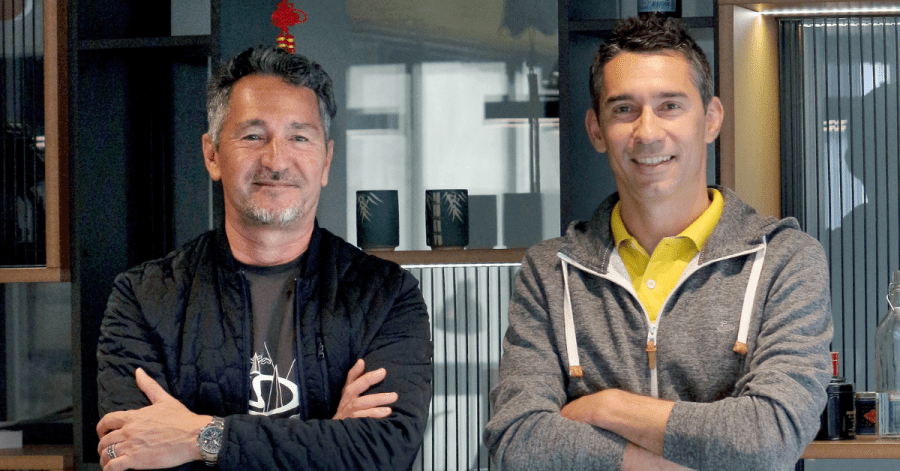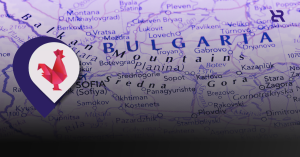How are the hottest video games designed? A combination of a compelling story, outstanding design, and flawless motion graphics, popular series, such as Assassin’s Creed have managed to spark the interest of a global community that amounts to over 2.8 billion players. Every week, gamers spend an average of 8 hours and 27 minutes, living in another world as ancient Vikings, basketball players, or Greek demigods.
The Bulgarian gaming industry features over 40 game development companies, a lot of them being divisions of international giants. “Our country has the creative talent to become a gaming development leader in the region,” Milin Djalaliev, co-founder at ARC Academy which trains future game developers shared. Established in 2018 by advertising specialist with over 16 years of experience Djalaliev, and his colleague, former Pixar art director Anthony Christov, ARC Academy has educated over 100 young individuals into digital arts fundamentals, game creation, and brand building.
Expanding its scope, recently, the Academy announced a partnership with the American University in Bulgaria (AUBG). The two parties will collaborate to offer AUBG students innovative academic degree courses in game design. Additionally, AUBG and ARC are aiming at organizing campaigns for the Bulgarian Game Dev community, providing it with educational and social events.
The Recursive spoke with Djalaliev to learn more about the logistics surrounding the project.
Video game storytellers
AUBG students are going to have the opportunity to take courses in game design, starting from the fall of 2022, Djalaliev shared. “Game design people are the ones responsible for creating the storyline and characters and building the logical interconnections between a character’s actions and the outcomes from them,” he explained, clarifying that these professionals are often misunderstood to be artists. “We believe that AUBG is the right place for offering such courses as its students already have very well-developed storytelling skills, polished during the courses they take in Literature, Arts, and History,” the ARC co-founder added. The Liberal Arts educational program at AUBG requires students to complete courses in natural and social sciences, mathematics, and arts, in addition to their major studies to receive a degree in their area of study.
AUBG and ARC will also be creating special summer programs for Erasmus students at the university, where foreigners will have the opportunity to study an intensive game design course. “The main idea behind this is to attract students from abroad to come and stay in Bulgaria in order to advance in the development of their game development skills,” Djalaliev hinted.
As part of the collaboration, ARC has also moved out of Sofia Tech Park, where it previously held its courses, to the premises of AUBG’s Elieff Center for Education and Culture in Student’s Town, Sofia. This is the venue where all the courses the two parties develop are going to take place.
The ARC co-founder added that the partnership has the potential to grow into an academic major, offered to AUBG students: “Currently, ARC is not an accredited institution, in contrast to AUBG, so our work together gives us the opportunity to consider a joint program in game design and development in the future.”
Educating the game dev tribe of Bulgaria
“Creative individuals are often very sensitive and fragile – one askance look from a parent can make them give up their undertaking. I and Anthony created the academy with the mission to provide creative talents with a safe place to develop and scale their potential,” Djalaliev said.
He shared that the ARC lectures are entirely led by gaming industry representatives and are focused on three main areas. The first domain is game design, the domain in which the idea about the narrative and characters are conceptualized, without being drawn. The second area is concept art – there, artists draw the images of heroes and environments, working in close collaboration with game designers. The third field in which ARC students can choose to specialize is 3D art, where they learn to create 3D images of the heroes and the environment. An educational course lasts for 2 years and is practice-intensive, centered around building a gaming project portfolio, the co-founder said.
ARC is expecting between 70 and 80 new students to join their program this fall. This year, the Academy has set off on a joint mission with America for Bulgaria Foundation to educate school teachers on how to set up and run student clubs for game development across different regions of Bulgaria. “We are educating top-level talents not only for the region but also for the global industry,” Djalaliev concluded.








